Adnoc Gas awards $2.1bn gas infrastructure contracts
10 January 2025

Register for MEED’s 14-day trial access
Adnoc Gas, the natural gas processing business of Abu Dhabi National Oil Company (Adnoc Group), has awarded three contracts worth $2.1bn to build infrastructure that will facilitate gas feedstock for the upcoming liquefied natural gas (LNG) terminal in Abu Dhabi’s Ruwais.
A consortium of Egyptian contractors Engineering for the Petroleum & Process Industries (Enppi) and Petrojet won a $1.24bn contract for the engineering, procurement and construction (EPC) of an LNG pre-conditioning plant within Adnoc Gas’ Habshan-5 gas processing complex.
The LNG pre-conditioning plant is intended to have the capacity to supply 1.5 billion cubic feet a day (cf/d) of gas feedstock for the Ruwais LNG complex.
UK-headquartered Petrofac secured a $335m contract to develop new compression facilities at the Habshan gas processing complex. This contract constitutes package 5 of Adnoc Gas’ larger project to upgrade its sales gas pipeline network across the UAE, also known as Estidama.
China Petroleum Pipeline Engineering Company won a $514m contract for EPC works to build a transmission pipeline network to provide gas to the Ruwais LNG complex and to other Adnoc Gas customers in the Northern Emirates.
This contract constitutes package 8 of the Estidama megaproject. In November, MEED reported that China Petroleum Pipeline Engineering was the favourite to win Estidama package 8.
The selection of contractors for packages 5 and 8 concludes the contract award exercise for the estimated $3bn Estidama megaproject. Through the Estidama scheme, Adnoc Gas aims to extend the existing 3,200 kilometre (km) pipeline network to over 3,500km, enabling the transportation of higher volumes of natural gas to customers across the UAE.
Detailed scope of work
The new LNG pre-conditioning plant will treat gas processed at facilities being built as part of Adnoc Gas’ Maximise Ethane Recovery & Monetisation (Meram) project.
Adnoc Gas awarded a $3.6bn contract for Project Meram to a consortium of Abu Dhabi’s NMDC Energy and Spanish contractor Tecnicas Reunidas in August 2023.
The Meram project has dual objectives. The first goal is to increase ethane extraction by 35%-40% from Adnoc Gas’ existing onshore facilities in the Habshan gas processing complex by constructing new gas processing facilities. The second goal is to unlock further value from existing feedstock and deliver it to Ruwais via a 120km natural gas liquids (NGL) pipeline.
The new LNG pre-conditioning plant will be an intermediate gas treatment facility for gas originating at Meram facilities, with the contractors required to perform EPC of the following units:
- High-pressure absorber and regenerator columns and internals
- Internals for high-pressure absorber and regenerator
- Molecular sieve adsorber
- Air-cooled exchangers
- Centrifugal compressor
- Centrifugal horizontal pumps
- Cooling water refrigeration
- Instrument air compressor
- Gas turbine generator
- Steam turbine generator
- Waste heat recovery boilers
- Power transformers 132/33kV
- Integrated control and safety system
- Tie-ins with Meram units and existing Habshan-5 facilities
- Associated civil works, including grading works, road works and fencing
Estidama package 5, won by Petrofac, broadly covers the upgrade of the Habshan gas processing complex, and includes the EPC of the following units:
- Booster station
- Variable frequency drive motor-driven compressors
- New compressor trains
- High-pressure gas discharge units
- Fibre optic cables and other communication equipment
- Control systems
- Safe and security systems
Petrofac is currently involved with several key projects involving the Habshan gas processing complex. The London-listed contractor won the main EPC contract for Estidama package 2 in July 2023. The scope of work on the $720m contract involves building a new facility at the KP-30 location of the Habshan gas compressor plant and installing three variable-frequency drive motor-driven compressors.
Separately, Adnoc Gas awarded Petrofac a $615m EPC contract in October 2023 for the carbon dioxide (CO2) recovery project at the Habshan complex. The planned Habshan carbon capture, utilisation and storage (CCUS) facility will have the capacity to capture and permanently store 1.5 million tonnes a year (t/y) of CO2 within geological formations deep underground.
The scope of work on Estidama package 8, won by China Petroleum Pipeline Engineering, involves building a gas transport pipeline in two sections.
The first segment of the pipeline will be a 56-inch suction line that runs 26km from the LNG pre-conditioning plant at the Habshan-5 facility to the Habshan gas processing complex. The second section is a larger portion of the pipeline. The 52-inch, high-pressure discharge line will run 155km from the KP-30 station at the Habshan gas processing complex to the upcoming Ruwais LNG facility.
Ruwais LNG terminal project
The upcoming LNG export terminal in Ruwais will have the capacity to produce about 9.6 million t/y of LNG from two processing trains, each with a capacity of 4.8 million t/y. When the project is commissioned, Adnoc’s LNG production capacity will more than double to about 15 million t/y.
Adnoc awarded the full EPC contract to the consortium of Technip Energies, JGC Corporation and NMDC Energy and achieved the final investment decision for the Ruwais LNG terminal complex in June last year.
The complex will also feature process units, storage tanks and an export jetty for loading cargoes and LNG bunkering, as well as utilities, flare handling systems and associated buildings.
Separately, Adnoc has also signed agreements with international energy companies to divest a total stake of 40% in the Ruwais LNG project.
UK energy producer BP, Mitsui & Co, Shell and French energy producer TotalEnergies will each hold 10% stakes in the Ruwais LNG terminal project, with Adnoc retaining the majority 60% stake in the facility.
Adnoc Gas will acquire its parent’s 60% stake in the Ruwais LNG facility, at cost, in the second half of 2028, when first production from the complex is due.
Along with awarding EPC contracts for the LNG pre-conditioning plant, the new compression facilities at the Habshan complex and the gas feedstock transmission pipeline, Adnoc Gas announced that capital expenditure on the three packages does not form part of the costs previously outlined by the company for its intended acquisition of Adnoc Group’s majority stake in the Ruwais LNG project.
The capex on the three projects forms part of Adnoc Gas’ $15bn capex portfolio until 2029.
ALSO READ: New CEOs take charge at Adnoc gas business units
Exclusive from Meed
-
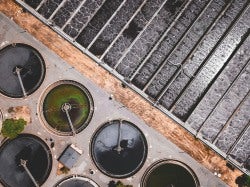 Dubai plans EPC tender for Warsan sewage treatment plant
Dubai plans EPC tender for Warsan sewage treatment plant25 February 2026
-
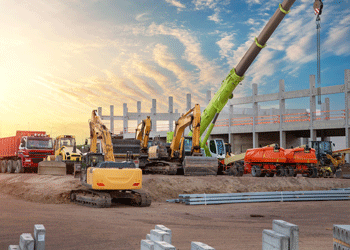 Aramco firm and Arcapita sign logistics facility deal
Aramco firm and Arcapita sign logistics facility deal25 February 2026
-
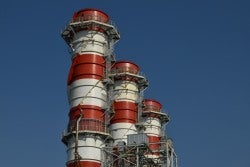 Algeria gives bidders more time for 1.2GW plant
Algeria gives bidders more time for 1.2GW plant25 February 2026
-
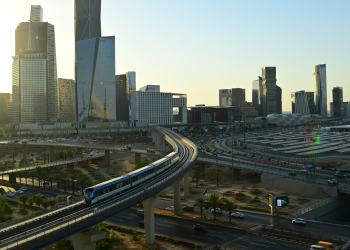 Riyadh tenders Line 7 metro project management deal
Riyadh tenders Line 7 metro project management deal25 February 2026
-
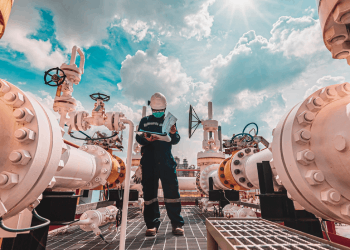 Six companies prequalify for Algeria gas contract
Six companies prequalify for Algeria gas contract25 February 2026
All of this is only 1% of what MEED.com has to offer
Subscribe now and unlock all the 153,671 articles on MEED.com
- All the latest news, data, and market intelligence across MENA at your fingerprints
- First-hand updates and inside information on projects, clients and competitors that matter to you
- 20 years' archive of information, data, and news for you to access at your convenience
- Strategize to succeed and minimise risks with timely analysis of current and future market trends

Related Articles
-
 Dubai plans EPC tender for Warsan sewage treatment plant
Dubai plans EPC tender for Warsan sewage treatment plant25 February 2026

Register for MEED’s 14-day trial access
Dubai Municipality is preparing to tender the main construction package for the Warsan sewage treatment plant (STP) by the end of the year, according to sources close to the project.
The scheme is linked to the deep sewerage tunnels infrastructure programme being implemented by the municipality’s sewerage and recycled water projects department.
As MEED understands, the Warsan STP had previously been expected to be procured as a public-private partnership (PPP) scheme.
However, sources confirmed that the main construction package will now be procured as an engineering, procurement and construction (EPC) contract.
The project involves the construction of a sewage treatment plant with a capacity of about 175,000 cubic metres a day (cm/d), including treatment units, sludge handling systems and associated infrastructure.
The plant, estimated to cost about $326m, will be developed at the existing Warsan complex, where the municipality is also progressing separate expansion and rehabilitation packages.
These include Warsan STP Phase 1 (DS-355/1), which involves sewerage and stormwater network upgrades, and Stage 2 of the Al-Warsan sewage treatment plant (DS-203/2), comprising new treatment units
Kuwait-headquartered Mohammed Abdulmohsin Al-Kharafi & Sons is the main EPC contractor for both projects.
Separately, the municipality is also progressing the expansion and upgrade of the first and second phases of the Jebel Ali STP.
The upgraded facility will be capable of treating an additional sewage flow of 100,000 cm/d.
Earlier this month, contractors were invited to prequalify for the contract.
The bid submission deadline is 2 April.
https://image.digitalinsightresearch.in/uploads/NewsArticle/15765751/main.jpg -
 Aramco firm and Arcapita sign logistics facility deal
Aramco firm and Arcapita sign logistics facility deal25 February 2026
Asmo, the logistics joint venture of Saudi Aramco and DHL Supply Chain, has signed an agreement with Bahrain‑headquartered Arcapita Group Holdings to deliver a 1.4-million-square-metre (sq m) built-to-suit logistics complex at King Salman Energy Park (Spark).
The project will feature a 43,000 sq m temperature-controlled, Grade A warehouse, more than 3,000 sq m of office and staff amenities, 5,300 sq m dedicated to chemical storage, and an open yard spanning about 1.2 million sq m.
Planned for large-scale industrial use, the site is expected to incorporate advanced warehouse and building management systems, end-to-end digital connectivity, automation and robotics.
It will also be developed in line with internationally recognised sustainability standards, featuring solar (photovoltaic) readiness, EV charging infrastructure and a target of LEED Gold certification.
The development is aimed at supporting the next stage of Saudi Arabia’s logistics and supply chain expansion.
Under the deal structure, Arcapita will provide funding and retain ownership of the asset, while Asmo will develop the facility and then lease and operate it under a 22-year occupational lease.
According to a statement, “the scheme will be executed via a forward-funding model, underscoring a long-term commitment to national infrastructure”.
Asmo added that this will be its first purpose-built logistics centre and one of four strategic locations planned to anchor its nationwide logistics network, aligned with the National Transport and Logistics Strategy (NTLS) under Saudi Vision 2030.
https://image.digitalinsightresearch.in/uploads/NewsArticle/15765085/main.gif -
 Algeria gives bidders more time for 1.2GW plant
Algeria gives bidders more time for 1.2GW plant25 February 2026
Algeria’s state-owned electricity and gas utility Sonelgaz has extended the bid submission deadline for a contract to build a 1,200MW combined-cycle gas-fired power plant in Adrar.
The project is being procured through Sonelgaz’s power generation subsidiary, Societe Algerienne de l’Electricite et du Gaz – Production de l’Electricite (SPE).
The new bid submission deadline is 29 April. The main contract was first tendered in April last year, and the deadline has been extended several times since.
The latest deadline was 26 February.
The tender is open to local and international companies with experience in delivering large-scale power generation projects and with sufficient technical and financial capacity.
Algeria’s wider power sector has experienced periods of limited contract activity in recent years. Between 2018 and 2022, virtually no new solar or wind farm contracts were awarded, according to available data from the regional projects tracker MEED Projects.
In 2023, Sonelgaz Energie Renouvelables, a subsidiary of Algeria’s state-owned utility, awarded 14 of the 15 solar photovoltaic (PV) packages it tendered that year.
At the time, MEED reported that the 15 packages had a total combined capacity of 2,000MW, requiring at least AD172bn ($1.2bn) of investment.
However, publicly available data suggests that progress has been slow with several schemes yet to reach full construction or commercial stages.
Gas-fired combined-cycle plants continue to account for the majority of Algeria’s electricity generation capacity. Data from MEED Projects indicates that more than 5,000MW of oil- and gas-fired power capacity is currently under construction.
Despite this, new contract awards in 2025 came from three solar schemes.
This included the construction of a 154MW solar PV plant in Bechar, for which China Power was appointed main contractor in August.
https://image.digitalinsightresearch.in/uploads/NewsArticle/15765079/main.jpg -
 Riyadh tenders Line 7 metro project management deal
Riyadh tenders Line 7 metro project management deal25 February 2026

Register for MEED’s 14-day trial access
The Royal Commission for Riyadh City (RCRC) has issued a tender inviting firms to bid for a contract for project management consultancy services for the construction of Riyadh Metro Line 7.
MEED understands that RCRC has allowed firms until March to submit their proposals.
The latest development follows contractors submitting bids on 31 January for a contract to design and build the project.
The project involves constructing a metro line linking the Qiddiya entertainment city development, King Abdullah International Gardens, King Salman Park, Misk City and Diriyah Gate. The total length of the line will be about 65 kilometres (km), of which 47km will be underground and 19km will be elevated.
The line will have 19 stations, 14 of which will be built underground and five above ground.
Riyadh Metro’s first phase features six lines with 84 stations. The RCRC completed the phased roll-out of the Riyadh Metro network when it started operating the Orange Line in January this year.
Construction has also begun on the next phase of Riyadh Metro, the extension of Line 2.
In July last year, MEED exclusively reported that RCRC had awarded an estimated $800m-$900m contract for the project.
The contract was awarded to the Arriyadh New Mobility Consortium, led by Italy’s Webuild.
The group also includes India’s Larsen & Toubro, Saudi Arabia’s Nesma & Partners and France’s Alstom.
Line 3, also known as the Orange Line, stretches from east to west, from Jeddah Road to the Second Eastern Ring Road, covering a total distance of 41km.
The line spans 8.4km, of which 1.3km is elevated and 7.1km is underground. It includes five stations – two elevated and three underground.
It will run from the current terminus of Line 2 at King Saud University (KSU) and continue to new stations at KSU Medical City, KSU West, Diriyah East and Diriyah Central – where it will interchange with the planned Line 7 – before terminating at Diriyah South.
https://image.digitalinsightresearch.in/uploads/NewsArticle/15764750/main.png -
 Six companies prequalify for Algeria gas contract
Six companies prequalify for Algeria gas contract25 February 2026
Register for MEED’s 14-day trial access
Six companies have prequalified for a contract that is part of a project to connect the liquefied natural gas (LNG) storage and loading lines of the gas complexes known as GL1Z and GL2Z, according to a statement issued by Algeria’s state-owned oil and gas company Sonatrach.
The two complexes are part of Sonatrach’s Arzew LNG hub.
The scope of work for the contract is focused on the execution of the basic engineering study for the project.
The six companies that have prequalified for the project are:
- JGC (Japan)
- McDermott (US)
- Synergy Engineering (Indonesia)
- ExidaSP (UAE)
- EPPM (Tunisia)
- Enreco (Italy)
In its statement, Sonatrach said: “Following the review of applications, the companies … have been prequalified and will be invited to participate and submit bids in the selective consultation.”
The Arzew LNG hub is Algeria’s main LNG export centre, located near the port town of Arzew, about 40 kilometres east of Oran on the Mediterranean coast.
Sonatrach is currently implementing several projects to upgrade facilities within the hub.
In October last year, MEED revealed that the gas train known as T-300 had been brought back online at the site.
The train was brought back online after a new main cryogenic heat exchanger (MCHE) was commissioned.
The upgrade was part of a broader contract with US-based Honeywell to replace four MCHEs at GL1Z.
The contract was originally signed with Air Products, and Honeywell acquired the contract when it bought Air Products’ LNG process technology and equipment business in September 2024.
https://image.digitalinsightresearch.in/uploads/NewsArticle/15762638/main.png


